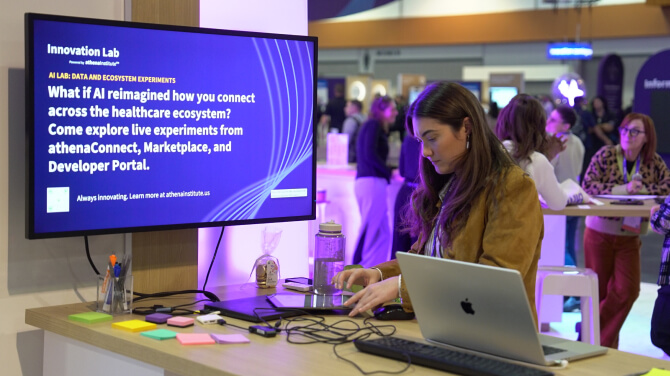Resource Center
All ContentBlogCase StudiesCustomer Success StoriesebooksWebinars- Alyssa Bennett Igo
- February 11, 2026
- 4 min read
Navigating financial challenges of the No Surprises Act
The No Surprises Act has made IDR an ongoing process. Learn how to make it manageable. Read moreMore resources

- Liz Kelly
- February 17, 2026
- 4 min read
thought leadership
The team sport of innovation – with customers
We invited customers to “vibe-code” with us at Thrive – and brought their ideas to life.
Read more
- athenahealth
- February 20, 2026
- 4 min read
patient engagement
Operationalizing full-scale patient engagement
Want improved patient engagement? Read about considerations for full-scale patient engagement.
Read more- Marty Fenn
- February 19, 2026
- 6 min read
AI in healthcare
Using AI triage systems to keep patients engaged
AI triage systems meet patients at the front door of care and free up time for admins. Learn how.
Read more
- athenahealth
- February 18, 2026
- 5 min read
practice management
Grow your practice without growing your costs
Learn to choose a product suite for scaling business operations efficiently. Read our guide.
Read more
- Liz Kelly
- February 17, 2026
- 4 min read
thought leadership
The team sport of innovation – with customers
We invited customers to “vibe-code” with us at Thrive – and brought their ideas to life.
Read more
- athenahealth
- February 20, 2026
- 4 min read
patient engagement
Operationalizing full-scale patient engagement
Want improved patient engagement? Read about considerations for full-scale patient engagement.
Read more- Marty Fenn
- February 19, 2026
- 6 min read
AI in healthcare
Using AI triage systems to keep patients engaged
AI triage systems meet patients at the front door of care and free up time for admins. Learn how.
Read more
- athenahealth
- February 18, 2026
- 5 min read
practice management
Grow your practice without growing your costs
Learn to choose a product suite for scaling business operations efficiently. Read our guide.
Read more
- Liz Kelly
- February 17, 2026
- 4 min read
thought leadership
The team sport of innovation – with customers
We invited customers to “vibe-code” with us at Thrive – and brought their ideas to life.
Read moreEmpower your practice

AI powered patient engagement
Learn how AI tools can help improve patient loyalty and outcomes.




